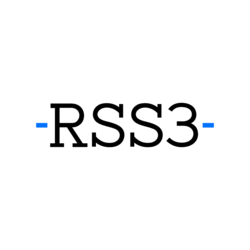
- Cardano developers IOG bringing Hydra Head to its micro-payments toolkit Hydra for Payments.
- Full deployment of Hydra will theoretically see Cardano process up to 1,000,000 tps.
The Cardano blockchain network is getting closer to seeing the large-scale deployment of its layer two (L2) scaling solution Hydra for use in making super fast micro-payments.
Input Output Global (IOG), the core developers of Cardano, has released an update via a Twitter thread on its fully open-source peer-to-peer payments developer toolkit being developed in partnership with Obsidian Systems called Hydra for Payments.
🧠 Hydra Head is the first in a suite of Hydra protocols that aim to increase network scalability. It’s an L2 solution that works as an off-chain mini ledger between a small group of participants – similar to the main on-chain ledger but faster, more cost-efficient.#Cardano
1/n pic.twitter.com/GdQi8UMOW6— Input Output (@InputOutputHK) November 21, 2022
Per the update, IOG is bringing Hydra Head to Hydra for Payments as the first protocol in a suite of Hydra protocols that aim to increase network scalability. Hydra Head is an L2 solution that works as an off-chain mini ledger between a small group of participants. It is similar to the main on-chain ledger but faster, more cost-efficient, scalable, isomorphic, and customizable.
Hydra Heads are fast, scalable, isomorphic, and customizable. Hydra Head transactions and ledger rules are similar to Cardano’s mainnet, which allows easy support by existing systems like DApps and wallets,
The implementation of Hydra Heads in Hydra for Payments will essentially introduce new use cases for the toolkit including allowing developers to build features that will support bank-to-bank transfers, pay-per-use API services, NFT auctions, and light wallet micropayments among others.
According to previous updates, this is poised to bring massive growth and adoption to the Cardano ecosystem. This is because Hydra can theoretically scale up the Cardano blockchain to reach 1,000,000 transactions per second (TPS).
Related: Can Cardano solve the scaling issue of blockchains? Hydra looks forward to 1,000,000 TPS
With such high throughput and extremely low fees, the Cardano blockchain would become one of the fastest blockchain networks and be in strong competition with traditional payment companies like MasterCard and Visa. Visa currently handles around 24,000 tps and could theoretically scale up to 65,000.
At present, several dApps in the Cardano ecosystem have been working on their implementation of Hydra. Decentralized exchange (DEX) SundaeSwap is among them having recently released a demo of their Hydra implementation in action.
Today our team is excited to demo something we’ve been hard at work on for months:
SundaeSwap on Hydra! While a ways out, this is an important milestone in not just our scaling journey, but Cardano’s as well.
We’ll provide detail later, but in the meantime check out our video⬇️ pic.twitter.com/eRyUPT88QL
— SundaeSwap Labs 🍨 (@SundaeSwap) October 14, 2022
Cardano ecosystem expanding rapidly
Hydra for Payments is not the only major development work being done on the Cardano blockchain ecosystem. Cardano also announced that it is working on a data protection-focused side chain called Midnight which will have its own native token called DUST that will be airdropped to ADA holders of recent.
Meanwhile, IOG has continued to extend its partnership with research institutions, unveiling a $4.5 million research hub at Edinburgh University in Scotland during an event it held at the institution. This follows the funding and launch of the Blockchain Research Hub at Stanford University in August.
The price of Cardano’s native token, ADA, meanwhile has continued to struggle in the crypto market. At the time of writing, ADA was trading at around $0.28, down 1.77 in the last 24 hours per the latest data.











































































Be the first to comment